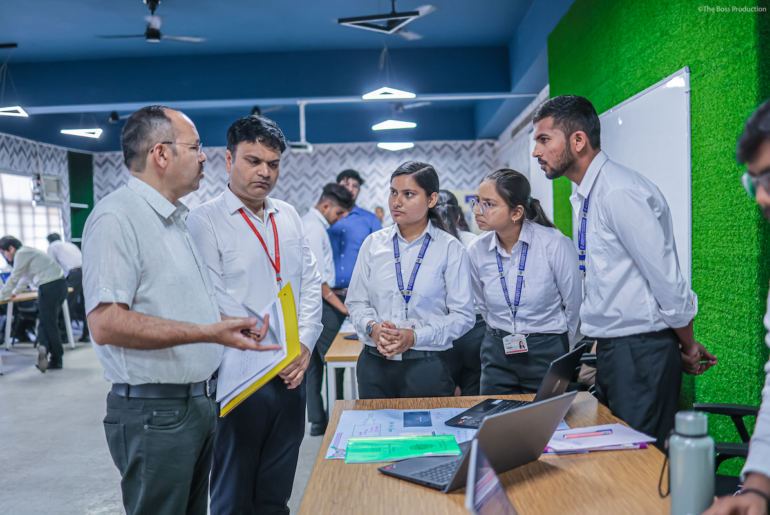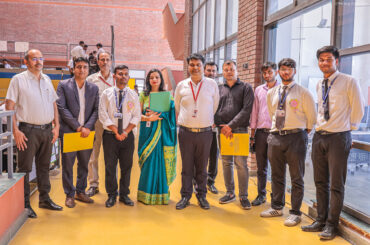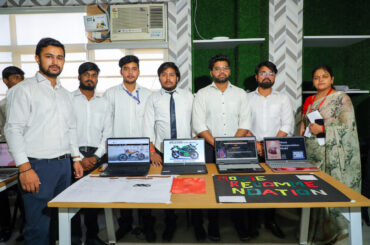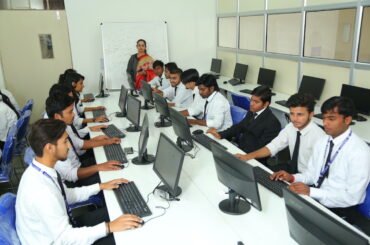BCA Scope
The Bachelor of Computer Applications (BCA) degree offers a wide range of career opportunities, highlighting the extensive BCA scope in the rapidly evolving field of information technology.
Graduates can pursue roles such as software developers, system analysts, database administrators, network architects, and IT consultants. With the increasing reliance on technology across all sectors, BCA graduates are in high demand in industries like finance, healthcare, education, and government.
Additionally, the BCA program equips students with a solid foundation in programming languages, web development, and software engineering, making them well-prepared for further studies or professional certifications in specialized areas such as cybersecurity, data science, and artificial intelligence.
The scope for BCA graduates extends globally, with ample opportunities for both higher education and employment in multinational corporations, startups, and tech firms.
The Bachelor of Computer Applications (BCA) is a three-year undergraduate program that provides a strong foundation in computer systems science and information technology.
There are various types of BCA courses available, including full-time, part-time, and online programs, catering to different needs and schedules of students.
Some of the most opted courses in India and St. Andrews college or different Engineering college or Management colleges are as follows:-
- Btech
- Btech CSE
- Btech ETCE
- MTech
- BCA
- BBA
- MBA
- MCA
- DPharma – St. Andrews College of Pharmacy
- BPharma – St. Andrews College of Pharmacy
- BArch – St. Andrews College of Architecture
BCA (Bachelor of Computer Application)
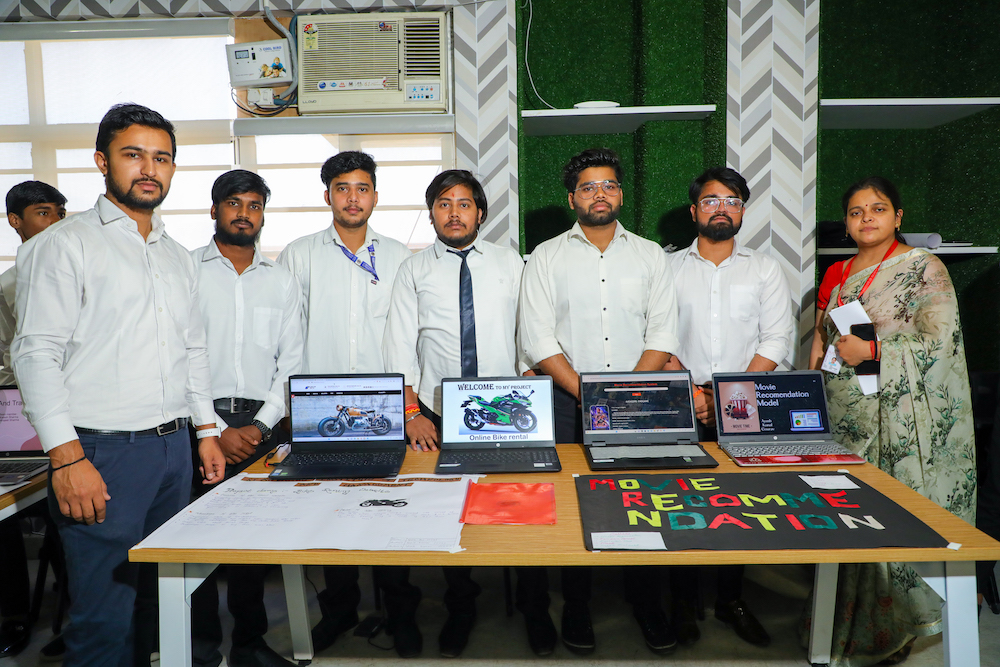
The Bachelor of Computer Application (BCA) is a three-year undergraduate program designed to impart comprehensive knowledge in computer and its applications.
This program provides a solid foundation in programming languages, web development, database management, and computer networks. Key subjects include languages like C, C++, Java, and Python, along with courses in data structures, algorithms, operating systems, and software engineering. This comprehensive curriculum broadens the BCA scope in various IT and software development roles.
To enroll in a BCA program, students must meet specific BCA eligibility criteria. The eligibility criteria may vary between colleges, but generally include a minimum academic qualification of completing 10+2 with a certain percentage of marks.
Students from different academic backgrounds, including science, commerce, and arts, may also be eligible for the BCA course. Some colleges may also require students to pass an entrance exam as part of the eligibility criteria.
The BCA degree curriculum combines theoretical knowledge with practical skills, enabling BCA students to solve complex computing problems and adapt to the evolving tech landscape.
Graduates gain proficiency in various technical areas, including coding, database management, and network administration, along with essential soft skills like project management and effective communication.
Career prospects for BCA degree graduates are diverse, with opportunities in roles such as software developer, web developer, system analyst, and IT consultant, reflecting the wide BCA scope in the IT industry.
Many graduates also pursue higher education, it can be master’s degree also such as an MCA (Master of Computer Applications) or specialized master’s programs in areas like data science and cybersecurity, to further enhance their career prospects.
BCA Course Duration

The Bachelor of Computer Application degree (BCA degree) is an undergraduate degree program with a typical duration of three years. During these three years, students undergo a structured curriculum that includes theoretical courses, practical laboratory sessions, projects, and internships.
The BCA degree program is designed to provide students with a comprehensive understanding of computer and its applications, covering subjects such as programming languages, database management, web development, software engineering, computer networks, and more.
Skills Developed During BCA Course
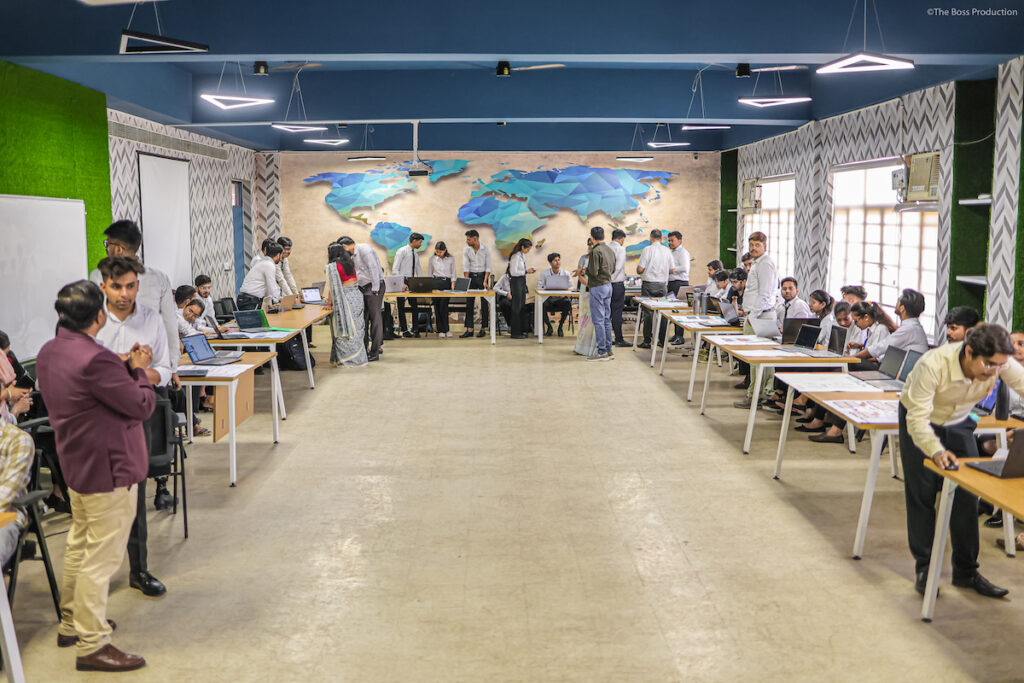
A Bachelor of Computer Applications (BCA) program equips students with a wide range of skills that are valuable in the IT industry and beyond.
Here’s a detailed list of skills developed during a BCA program:
Technical Skills
Programming Languages:
Proficiency in languages such as C, C++, Java, Python, and others.
Understanding of syntax, semantics, and best coding practices.
Database Management:
Knowledge of SQL and database management systems like MySQL, Oracle, and MongoDB.
Skills in database design, normalization, and data manipulation.
Web Development:
HTML, CSS, JavaScript for front-end development.
Server-side scripting languages such as PHP.
Frameworks and libraries like React, Angular, and Node.js.
Software Development:
Principles of software engineering, including software development life cycle (SDLC), agile methodologies, and version control systems like Git.
Experience with integrated development environments (IDEs) such as Eclipse, Visual Studio, and PyCharm.
Operating Systems:
Understanding of operating systems concepts, including process management, memory management, and file systems.
Hands-on experience with operating systems like Windows, Linux, and Unix.
Networking:
Basics of computer networks, including OSI and TCP/IP models.
Knowledge of network protocols, network security, and wireless networks.
Mobile Application Development:
Development of mobile applications for platforms like Android and iOS using technologies like Java, Kotlin, Swift, and Flutter.
Analytical and Problem-Solving Skills
Algorithm Design and Analysis:
Understanding of data structures and algorithms, including sorting, searching, and optimization techniques.
Ability to design efficient algorithms and analyze their time and space complexity.
Critical Thinking:
Ability to approach problems logically and systematically.
Use of analytical tools and techniques to solve complex issues.
Management and Soft Skills
Project Management:
Understanding of project management principles, including planning, execution, monitoring, and closure.
Familiarity with tools like Microsoft Project, JIRA, and Trello.
Communication Skills:
Development of written and verbal communication skills to effectively convey technical information.
Experience in creating technical documentation, reports, and presentations.
Team Collaboration:
Ability to work effectively in team settings, understanding team dynamics, and collaborative problem-solving.
Experience in group projects and peer programming.
Time Management:
Skills in prioritizing tasks, managing time effectively, and meeting deadlines.
Balancing academic workload with project work and practical assignments.
Additional Skills
Ethical and Social Responsibility:
Understanding of professional ethics in IT.
Awareness of the social and environmental impact of technology.
Entrepreneurial Skills:
Basic understanding of entrepreneurship, startups, and innovation in technology.
Exposure to business models, market analysis, and financial planning.
Research Skills:
Ability to conduct research and stay updated with the latest technological advancements.
Experience in academic research, technical writing, and presentations.
Practical Experience
Internships and Industry Exposure:
Practical experience through internships in IT companies, startups, and other organizations.
Exposure to real-world projects and industry practices.
Capstone Projects:
Development of comprehensive projects that integrate various skills learned during the program.
Experience in project planning, development, testing, and deployment.
Personal Development
Self-Learning:
Encouragement to engage in self-learning and continuous professional development.
Use of online resources, courses, and certifications to enhance knowledge and skills.
Career Opportunities After BCA Course

A Bachelor of Computer Application (BCA) undergraduate degree offers a wide range of opportunities in India, given the country’s rapidly growing IT industry and digital transformation across various sectors. BCA Students get a good average salary ranging between INR 2.5 to 4 lakhs per annum for freshers.
Here are some key areas where a BCA degree can be valuable:
Job Opportunities in the IT Field
Software Developer/Engineer: Software engineers develops software application, websites, and mobile apps.
Web Developer: Creating and maintaining websites.
System Analyst: Analyzing and designing IT solutions for businesses.
Database Administrator: Managing and organizing databases.
Technical Support: Providing technical assistance and support for IT-related issues.
IT Consultant: Advising businesses on how to use information technology to meet their objectives.
Opportunities in Government Sector
Various government departments require IT professionals for maintaining their IT infrastructure and services.
Public sector banks and financial institutions also hire BCA degree holder for IT roles.
Higher Studies
MCA (Master of Computer Applications): A popular postgraduate option for BCA degree holders to deepen their technical knowledge and improve their career prospects with a master’s degree.
MBA (Master of Business Administration): For those interested in moving into managerial roles within the IT industry, pursuing a master’s degree can be highly beneficial.
Specialized Master’s Programs: In fields like data science, cybersecurity, artificial intelligence, and more, a master’s degree helps in acquiring specialized knowledge and developing skills for higher-level jobs in software development, database management, and consultancy firms.
Self-Employment and Entrepreneurship
Freelancing: Offering web development, app development, and other IT-related services.
Startups: Launching your own tech-based startup, taking advantage of India’s supportive ecosystem for entrepreneurs.
Other Emerging Fields
Digital Marketing: Leveraging IT skills for online marketing, SEO, and social media management.
E-commerce: Working with online retail companies in various technical roles.
Cloud Computing: Specializing in cloud technologies, which are in high demand.
Certifications and Additional Skills
Pursuing certifications in specific technologies (like AWS, Azure, Google Cloud, etc.) can significantly enhance job prospects.
Learning new programming languages, frameworks, and tools can provide a competitive edge in the job market.
Teaching and Academics
Pursuing a career in academia by becoming a lecturer or professor in computer science and related subjects.
Engaging in research and contributing to technological advancements.
Global Opportunities
Many multinational companies in India provide opportunities to work on international projects and even offer placements abroad.
Top BCA Colleges in India

Here are some of the top government BCA (Bachelor of Computer Applications) colleges in India:
Jawaharlal Nehru University (JNU), New Delhi
Offers a well-structured BCA programme with a focus on both theoretical and practical aspects of computer science.
Known for its excellent faculty and research opportunities.
University of Delhi (DU), New Delhi
Various colleges under DU, such as Shaheed Sukhdev College of Business Studies and Keshav Mahavidyalaya, offer BCA programs.
Renowned for its academic rigor and campus placements.
Guru Gobind Singh Indraprastha University (GGSIPU), New Delhi
Offers a BCA program through its affiliated colleges.
Known for its strong curriculum and placement support.
St. Andrews Institute of Technology & Management
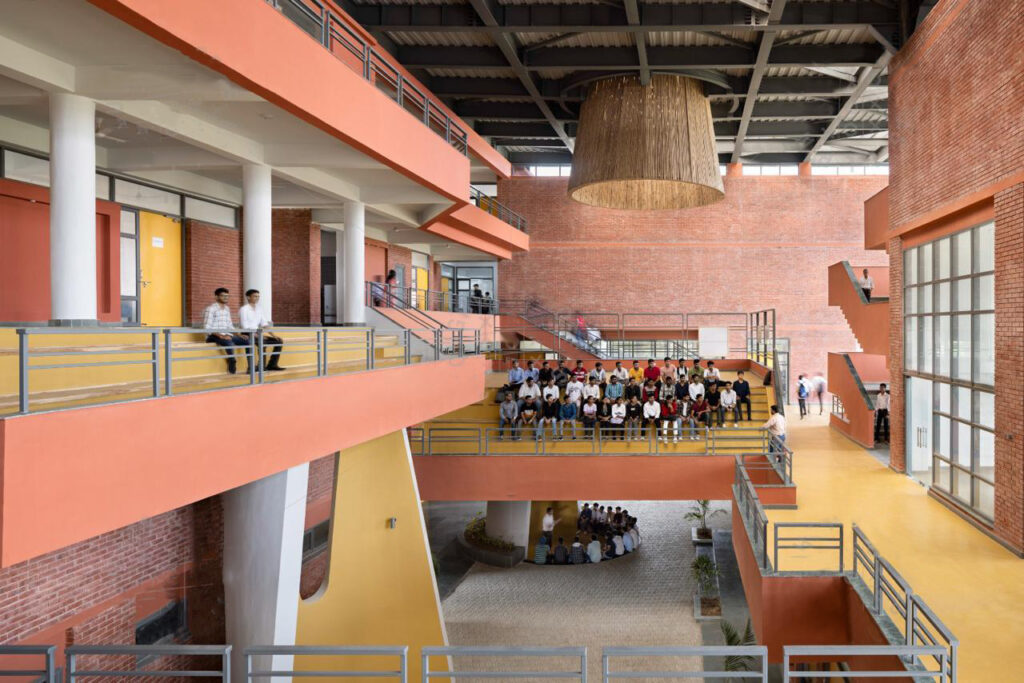
St. Andrews Institute of Technology & Management (SAITM) offers a Bachelor of Computer Applications (BCA) program aimed at providing students with a strong foundation in computer science and its applications.
Jamia Millia Islamia (JMI), New Delhi
Offers a comprehensive BCA program with a focus on modern computing technologies.
Known for its diverse student body and good placement opportunities.
Maharaja Sayajirao University of Baroda, Vadodara
Offers a BCA program with a strong emphasis on computer science and applications.
Known for its excellent faculty and infrastructure.
Kurukshetra University, Kurukshetra
Offers a robust BCA program with a focus on practical and theoretical knowledge.
Known for its strong academic environment and good placement records.
Banasthali Vidyapith, Rajasthan
A women’s university offering a well-structured BCA program.
Known for its holistic development approach and excellent placement support.
Panjab University, Chandigarh
Offers a BCA program with a focus on modern computing technologies.
Known for its academic excellence and campus facilities.
Savitribai Phule Pune University (SPPU), Pune
Offers a BCA program through its affiliated colleges.
Known for its strong academic framework and industry connections.
Dr. B.R. Ambedkar University, Agra
Offers a comprehensive BCA program with a focus on both theoretical and practical aspects of computer applications.
Known for its academic support and placement opportunities.
Higher Studies and Specializations After BCA Degree

After completing a Bachelor of Computer Applications (BCA), students have numerous opportunities for higher studies, such as pursuing a master’s degree and specializations, which can further enhance their skills and career prospects. This expands the BCA scope significantly.
Here are some popular options:
Master of Computer Applications (MCA)
Focus: Advanced study in computer science, software development, and applications.
Duration: Typically 2 years.
Benefits: Deepens technical knowledge, enhances career prospects in software development, IT management, and academia.
Master of Business Administration (MBA)
Specializations: Information Technology, Business Analytics, Project Management, etc.
Duration: Typically 2 years.
Benefits: Combines technical skills with business acumen, opens opportunities in management, consulting, and entrepreneurial roles.
M.Sc. Computer Science/IT
Focus: In-depth knowledge of computer science theories, algorithms, data structures, and emerging technologies.
Duration: Typically 2 years.
Benefits: Prepares for research roles, advanced technical positions, and further academic pursuits like a Ph.D.
Post Graduate Diploma in Computer Applications (PGDCA)
Focus: Practical aspects of computer applications, software development, and IT infrastructure.
Duration: Typically 1 year.
Benefits: Quick upskilling, suitable for immediate job market entry, and specialization in a particular area of IT.
Specialized Certifications and Courses
Examples:
Data Science and Big Data (Coursera, edX, Udacity)
Artificial Intelligence and Machine Learning (Coursera, edX, Udacity)
Cybersecurity (CompTIA Security+, CISSP, CEH)
Cloud Computing (AWS Certified Solutions Architect, Google Cloud Professional)
Blockchain Technology (IBM Blockchain, Certified Blockchain Expert)
Benefits: Targeted skill development, recognized certifications, and shorter duration compared to full degrees.
M.Tech or M.E. in Computer Science/IT
Focus: Advanced technical knowledge, research opportunities, and specialization in areas like software engineering, networks, and cybersecurity.
Duration: Typically 2 years.
Benefits: Suitable for technical leadership roles, research and development positions, and academic careers.
Ph.D. in Computer Science/IT
Focus: Original research in a specialized area of computer science, contributing new knowledge to the field.
Duration: Typically 3-5 years.
Benefits: Career in academia, advanced research roles, and high-level consultancy.
Integrated MBA Programs
Focus: Combines technical and management education.
Duration: Typically 5 years (including BCA).
Benefits: Holistic education in both technology and business, ideal for leadership roles in tech companies.
Master’s in Information Systems (MIS)
Focus: Management of information systems, IT strategy, and business-technology alignment.
Duration: Typically 1-2 years.
Benefits: Prepares for roles in IT management, system analysis, and consulting.
Master’s in Data Science/Analytics
Focus: Data analysis, statistical methods, machine learning, and big data technologies.
Duration: Typically 1-2 years.
Benefits: High demand in various industries, roles in data science, analytics, and business intelligence.
Job Roles and Responsibilities
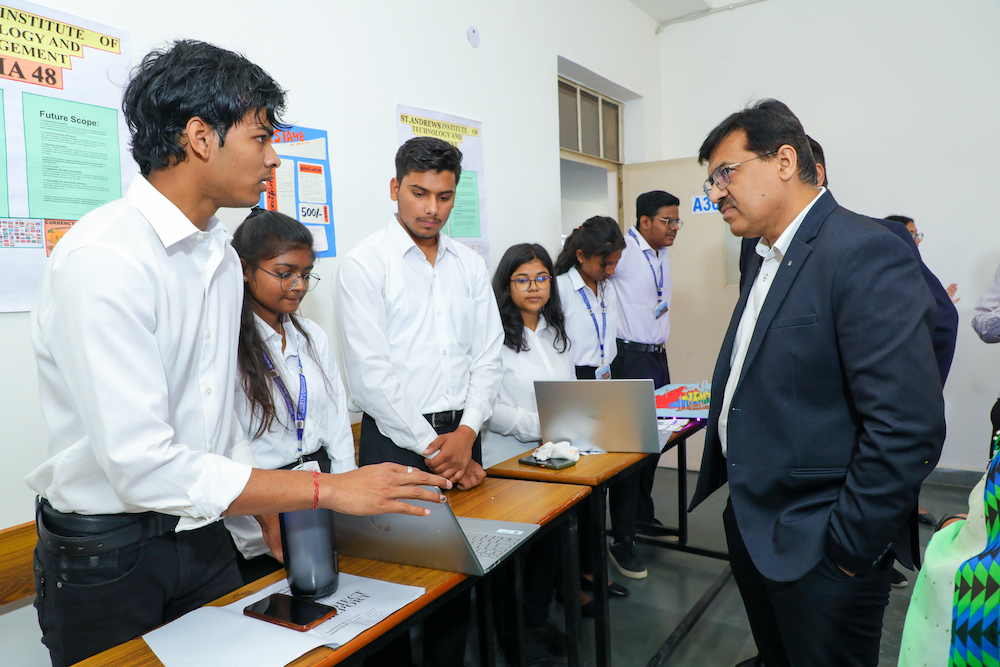
The Bachelor of Computer Applications (BCA course) degree offers a broad range of career or jobs opportunities in the rapidly growing field of information technology (IT) and related industries.
Here are some of the career paths and job opportunities available for BCA graduates:
Software Developer/Engineer
Design, develop, test, and maintain software applications.
Utilize programming languages such as Java, C++, Python, etc.
Work in various domains such as web development, mobile app development, gaming, etc.
Web Developer
Create and maintain websites and web applications.
Proficiency in languages like HTML, CSS, JavaScript, and frameworks like React, Angular, etc., is essential.
Specialize in front-end development, back-end development, or full-stack development.
Database Administrator (DBA)
Manage and maintain databases to ensure data integrity, security, and performance.
Skills in DBMS such as MySQL, Oracle, SQL Server, etc., are required.
Handle tasks like database design, implementation, backup, recovery, and optimization.
Network Administrator/Engineer
Plan, implement, and maintain computer network within an organization.
Configure network devices, troubleshoot network issues, and ensure network security.
Knowledge of networking protocols, hardware, and security measures is necessary.
Systems Analyst
Analyze business requirements and design information systems solutions.
Bridge the gap between business needs and technical capabilities.
Skills in requirements gathering, system design, and project management are important.
IT Consultant
Provide advisory and consultancy services to clients on IT-related matters.
Assess client requirements, recommend solutions, and oversee implementation.
Specialize in areas such as cybersecurity, cloud computing, digital transformation, etc.
Quality Assurance (QA) Analyst/Tester
Test software applications to ensure they meet quality standards and functional requirements.
Develop test plans, execute test cases, report defects, and collaborate with developers to resolve issues.
Knowledge of testing methodologies, tools, and techniques is necessary.
Business Analyst
Analyze business processes, identify areas for improvement, and propose IT solutions.
Act as a liaison between business stakeholders and IT teams.
Skills in data analysis, requirement elicitation, and problem-solving are vital.
Technical Writer
Create technical documentation, user manuals, and guides for software products.
Translate complex technical information into clear and understandable content.
Strong writing skills and technical proficiency are required.
Public vs. Private Sector Opportunities

For BCA graduates, both the public and private sectors offer diverse job opportunities. Each sector has its unique advantages, requirements, and career prospects.
Here’s a detailed comparison to help you understand the opportunities in both sectors:
Private Sector Opportunities
Software Development and IT Services
Companies: Tech giants like Google, Microsoft, Apple, and IBM; IT service providers like Infosys, TCS, Wipro.
Roles: Software Developer, Full-Stack Developer, Systems Analyst, IT Consultant.
Advantages: Competitive salaries, dynamic work environments, opportunities for rapid career growth, exposure to cutting-edge technologies.
Startups and Small to Medium Enterprises (SMEs)
Environment: Innovative, fast-paced, and flexible work culture.
Roles: Software Engineer, Web Developer, Data Analyst, Mobile App Developer.
Advantages: Greater responsibility, learning opportunities, potential for equity and rapid career advancement.
E-commerce and Retail
Companies: Amazon, Flipkart, Shopify.
Roles: E-commerce Developer, Data Analyst, IT Support Specialist.
Advantages: Growing industry, diverse roles, innovation-driven environment.
Finance and Banking
Companies: JPMorgan Chase, Goldman Sachs, Citibank, fintech startups.
Roles: Data Analyst, Software Developer, IT Auditor, Cybersecurity Specialist.
Advantages: High salaries, stable career paths, opportunities to work on financial technologies (fintech).
Healthcare Technology
Companies: Cerner, Epic Systems, Philips Healthcare, startups.
Roles: Health Informatics Specialist, Data Analyst, Software Developer.
Advantages: Impactful work, growing field, opportunities in health data management and telemedicine.
Telecommunications
Companies: AT&T, Verizon, Vodafone, Reliance Jio.
Roles: Network Engineer, Systems Analyst, Software Developer.
Advantages: Opportunities in network management, software development, and IT infrastructure.
Public Sector Opportunities
Government IT Departments
Roles: IT Officer, Systems Administrator, Network Engineer, Cybersecurity Analyst.
Advantages: Job security, stable work environment, opportunities to work on large-scale public projects.
Public Sector Undertakings (PSUs)
Companies: National Informatics Centre (NIC), Bharat Sanchar Nigam Limited (BSNL), Oil and Natural Gas Corporation (ONGC).
Roles: IT Specialist, Software Developer, Systems Analyst.
Advantages: Competitive salaries, job security, benefits like pension and healthcare.
Defense and Space Research Organizations
Organizations: Indian Space Research Organisation (ISRO), Defense Research and Development Organisation (DRDO).
Roles: Software Engineer, Systems Analyst, Data Scientist.
Advantages: Prestigious positions, opportunities to work on cutting-edge technology and national projects.
Public Health and Education
Roles: IT Support Specialist, Database Administrator, Software Developer.
Advantages: Stable employment, opportunities to contribute to societal welfare, work-life balance.
Academic and Research Institutions
Organizations: Universities, National Institutes of Technology (NITs), Indian Institutes of Technology (IITs).
Roles: Research Associate, IT Administrator, Software Developer.
Advantages: Opportunities for further education and research, stable work environment.
Top Industries Hiring BCA Graduates
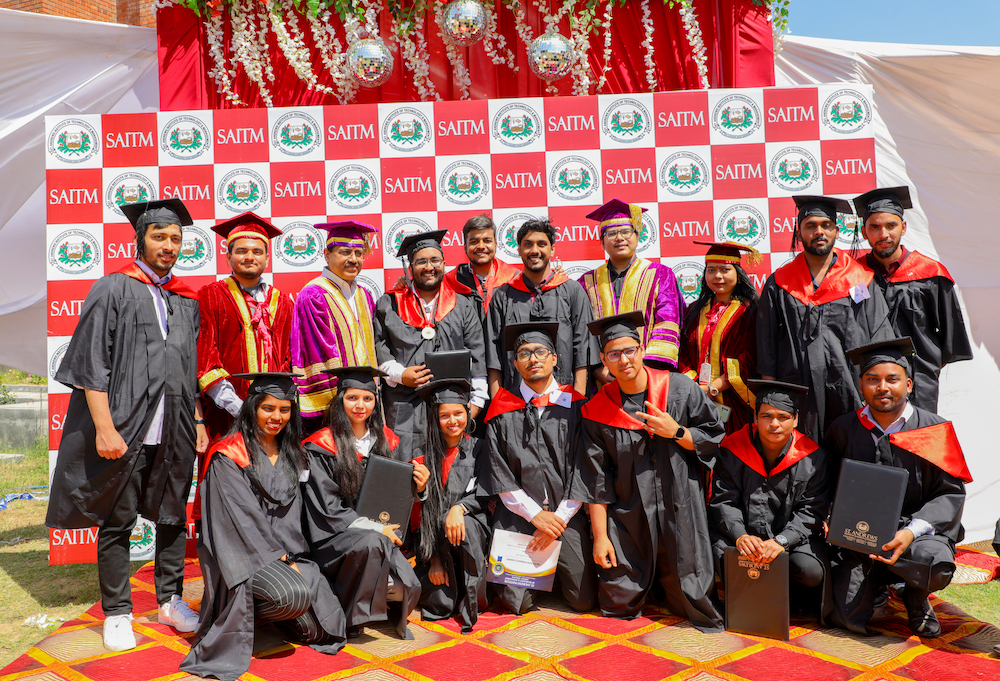
BCA graduates have a wide range of opportunities in the IT and software industry. Many top companies actively hire BCA graduates for various roles, demonstrating the broad BCA scope in the job market.
Here are some of the top recruiters for BCA graduates:
Tata Consultancy Services (TCS)
Roles: Software Developer, System Analyst, IT Consultant
Description: TCS is one of the largest IT services firms in the world, offering a variety of technology solutions and services.
Infosys
Roles: Software Engineer, System Engineer, Business Analyst
Description: Infosys provides IT consulting, software development, and outsourcing services globally.
Wipro
Roles: Project Engineer, Software Developer, IT Support
Description: Wipro offers information technology, consulting, and business process services.
HCL Technologies
Roles: Software Developer, Network Engineer, Technical Analyst
Description: HCL Technologies is a leading global IT services company that helps enterprises reimagine and transform their businesses through digital technology transformation, showcasing the extensive BCA scope in the industry.
Accenture
Roles: Application Development Associate, IT Analyst, Technology Consultant
Description: Accenture provides consulting, technology, and outsourcing services with a focus on helping clients achieve digital transformation.
IBM
Roles: Software Engineer, Data Analyst, Cloud Engineer
Description: IBM is a multinational technology company that offers hardware, software, and consulting services.
Capgemini
Roles: Software Consultant, Technical Analyst, Application Developer
Description: Capgemini provides consulting, technology, professional, and outsourcing services.
Cognizant
Roles: Programmer Analyst, Software Developer, IT Consultant
Description: Cognizant is a multinational corporation that provides IT services, including digital, technology, consulting, and operations services.
Tech Mahindra
Roles: Software Developer, Network Engineer, System Analyst
Description: Tech Mahindra offers IT services and solutions to various industries worldwide.
Oracle
Roles: Database Administrator, Software Developer, Cloud Specialist
Description: Oracle is a global leader in database software, cloud solutions, and enterprise software products.
Amazon
Roles: Cloud Support Associate, Software Programming Engineer, Data Analyst
Description: Amazon, a global e-commerce giant, also offers cloud computing services through Amazon Web Services (AWS).
Microsoft
Roles: Software Engineer, IT Support Specialist, Data Scientist
Description: Microsoft is a multinational technology company that develops, licenses, and supports a wide range of software products, services, and devices.
Deloitte
Roles: Business Technology Analyst, IT Consultant, Software Developer
Description: Deloitte is a multinational professional services network offering audit, consulting, tax, and advisory services.
KPMG
Roles: IT Advisory Associate, Software Developer, Data Analyst
Description: KPMG is a global network of professional services firms providing audit, tax, and advisory services.
Ernst & Young (EY)
Roles: IT Risk Analyst, Software Developer, Technology Consultant
Description: EY is a multinational professional services firm offering advisory, assurance, tax, and transaction advisory services.
Additional Recruiters:
Flipkart
Paytm
L&T Infotech
Mindtree
Adobe
Dell Technologies
Hexaware Technologies
SAP Labs
Birla soft
Average Salary Expectations After BCA Degree

The average salary for BCA graduates in India varies based on several factors, including job role, industry, location, experience, and skills, reflecting the diverse BCA scope in the job market.
Here’s a detailed breakdown:
Factors Influencing BCA Salaries:
Job Role: Different roles within the IT sector offer varying salary levels. For example:
Software Developer: ₹3 lakh to ₹6 lakh per annum (entry-level).
System Administrator: ₹2.5 lakh to ₹5 lakh per annum (entry-level).
Data Analyst: ₹3 lakh to ₹6 lakh per annum (entry-level).
Industry
Salaries may differ based on the industry, with sectors such as IT services, software programming, and e-commerce typically offering higher salaries compared to others.
Location
Salaries can vary significantly based on the city or region. Metropolitan cities like Bangalore, Pune, Hyderabad, Chennai, and Mumbai generally offer higher salaries due to the cost of living and demand for IT professionals.
Experience
As with any field, experience plays a crucial role in determining salary levels. Entry-level positions offer lower salaries, which increase with experience and expertise.
Skills and Specializations
Specialized skills such as programming languages (Java, Python, etc.), web development, and data analysis can command higher salaries.
Average BCA Graduate Salaries in India (Entry-Level):
Software Developer: ₹2.5 lakh to ₹6 lakh per annum
System Engineer: ₹2.5 lakh to ₹5 lakh per annum
Data Analyst: ₹3 lakh to ₹6 lakh per annum
Web Developer: ₹2.5 lakh to ₹5 lakh per annum
Network Engineer: ₹2.5 lakh to ₹5 lakh per annum
IT Support Specialist: ₹2.5 lakh to ₹4.5 lakh per annum
Average BCA Degree Holder Salaries in India (Mid-Level and Senior Positions):
Software Development Manager: ₹8 lakh to ₹20 lakh+ per annum
Project Manager (IT): ₹8 lakh to ₹20 lakh+ per annum
Data Scientist: ₹8 lakh to ₹25 lakh+ per annum
IT Consultant: ₹6 lakh to ₹18 lakh+ per annum
Senior Software Engineer: ₹6 lakh to ₹15 lakh+ per annum
FAQs
What is BCA?
The BCA course (Bachelor of Computer Applications) is an undergraduate degree in computer applications, typically lasting three years. It covers various aspects such as software development, web development, DBMS, and computer networks. The BCA scope includes a wide range of career opportunities in the IT industry.
What can be the job opportunities for BCA Graduates?
BCA Graduates with a BCA degree can pursue various career paths, including:
Software Developer
Web Designer
System Analyst
Database Administrator
Network Administrator
IT Support Specialist
Cybersecurity Analyst
Data Scientist
Is BCA course a good course for someone interested in programming?
Absolutely. The BCA course provides a strong foundation in programming languages such as C, C++, Java, Python, and more. It is an excellent choice for those interested in building a career in software development and related fields. The BCA scope extends to numerous opportunities in the IT industry.
What is the average salary for a BCA graduates?
The average salary for a BCA graduate varies based on the job role, company, and location.
Are internships important during the BCA course?
Yes, internships during the BCA course are crucial as they provide practical experience and exposure to the IT industry’s working environment. They also enhance employability by building skills and professional networks, further broadening the BCA scope in terms of career opportunities.
Do BCA students have future scope in non-IT sector?
Yes, BCA graduates can work in non-IT sectors where IT skills are needed, such as banking, finance, education, and healthcare. They can take on roles such as IT consultants, system managers, and more, highlighting the broad BCA scope in various industries.
Is BCA course recognized internationally?
Yes, the BCA course is recognized internationally, and graduates can find opportunities abroad. However, they may need to pursue additional certifications or degrees depending on the country and job market, further expanding the BCA scope globally.

